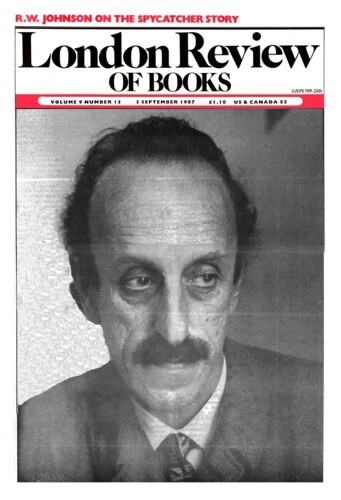Nigel Bowles on the unmaking of the President
Nigel Bowles, 3 September 1987
With the broken bones of his foreign policy being publicly picked over by a joint House-Senate investigating committee, it was difficult to recall that Ronald Reagan was as recently as last autumn an asset to his party, and the source and symbol of the rebirth of the office he held. Now his administration is gravely damaged, and the old concerns about the office’s modern tendency to sweep aside Constitution and statutory restraint in pursuit of private policy have been reawakened. On the one hand, the fragmentation of American politics, the biennial participation of a fair proportion of its participants in elections, and the statutory restrictions which Congress placed on the Presidency in the wake of the abuse of Presidential power under Johnson and Nixon, set limits on government, just as the framers of the Constitution intended. On the other, this dense combination of constitutional order and regularity of election offers a permanent incentive for Presidents and their staff to find extra-constitutional ways of making government work for them.

